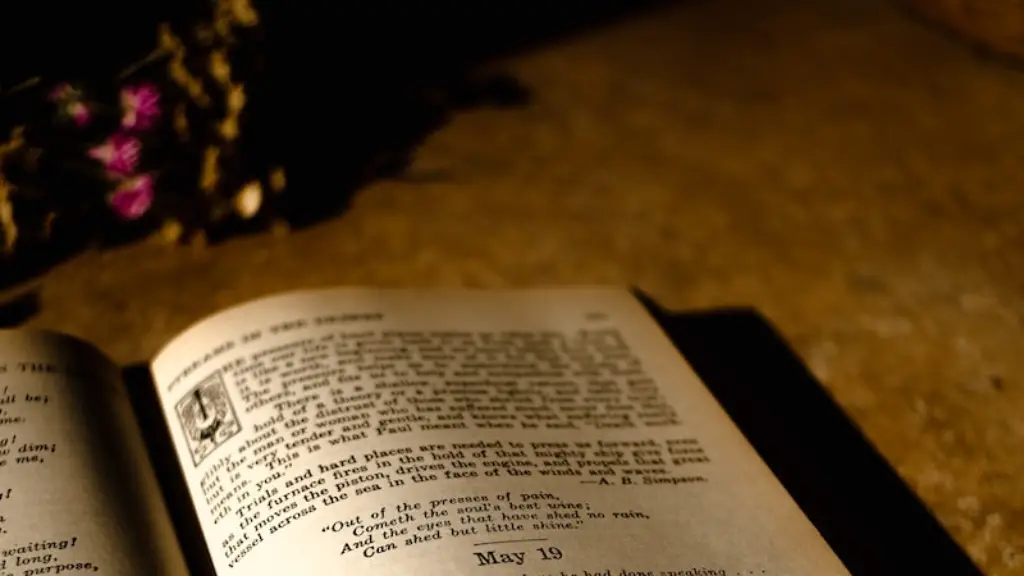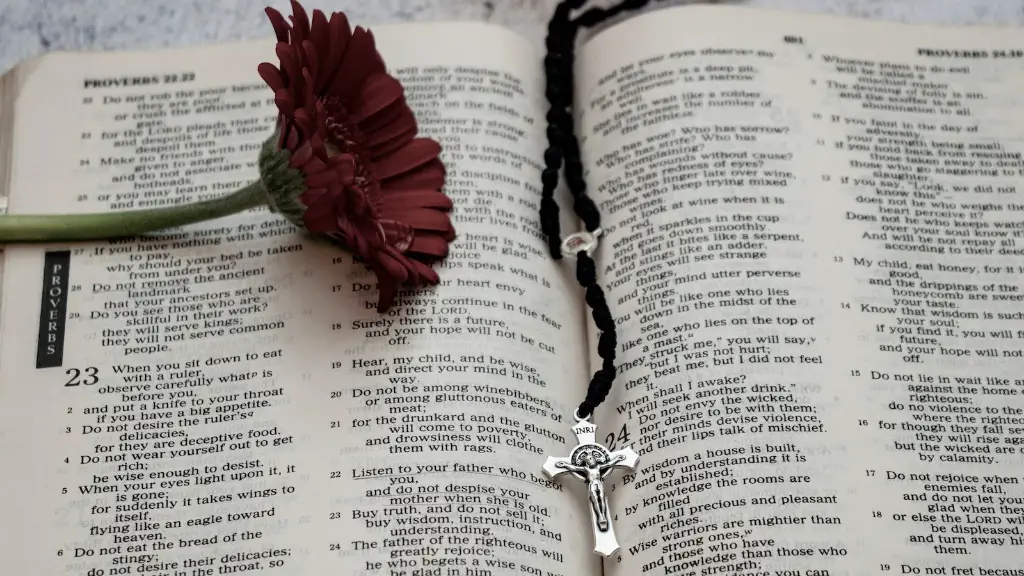The biblical figure Leviathan is a mythical sea creature with immense size and strength. It is described in several passages in the Bible, most notably in the Book of Job, and is often associated with chaos and destruction. In Jewish mythology, the creature is a symbol of God’s power and might. In later Christian traditions, the figure has been described as a symbol of the Devil or a fallen angel.
The most famous example of Leviathan in the Bible is found in the Book of Job, where God commands the creature to appear before Him. God then questions Job about why he should serve Him and orders Job to answer. Job’s response is that he is not able to, leading to a lengthy back-and-forth between God and the creature, ending with Job humbly submitting to God’s authority.
In later Christian tradition, Leviathan represents Satan. In this interpretation, Leviathan is a powerful figure of chaos and destruction, but ultimately under the control of God. This interpretation is supported by the Book of Revelation, which states that the “great dragon” – interpreted as Leviathan – will be cast into the “bottomless pit” and God’s judgement will come to pass. This suggests that Leviathan is subordinate to God.
In some interpretations, Leviathan is seen as a symbol of divine power and strength. For example, in the Dead Sea Scrolls, Leviathan is associated with the primal sea, a cosmic force of upheaval that God has the power to control. In this case, Leviathan is a reminder of God’s entrancing power over all the forces of chaos.
In Jewish folklore, Leviathan is associated with travails over the ocean and its profundity. Traditionally, the creature was thought to be so powerful that it could swallow ships in one gulp. In other interpretations, Leviathan symbolizes mankind’s need to be mindful of the power of the ocean and its dangers. In some interpretations, Leviathan represents the depths of the sea, as a metaphor for the depths of life. It is thought to be the origin of an aquatic “monster”, against which mankind needs to protect itself.
The figure of Leviathan has been a source of fascination for many generations. While there are numerous interpretations of the figure and its meaning, it is clear that the biblical creature has had a lasting impact on how we think about the power of God and the significance of chaos and destruction.
Gender Associations
Leviathan has long been associated with male power and strength. In some interpretations, Leviathan is a masculine figure, while in others he is described as a powerful and vengeful creature. In historic Christian tradition, Leviathan often appears as a destructive figure, and some legends associate him with the Devil himself. The figure of the Leviathan was also often used in the Middle Ages in Christian art as a symbol of chaos, war and devastation.
Leviathan is also often represented as a sea creature. The Bible describes Leviathan as “without fear, great and thirsty”, making him an ideal representation of male power and strength, as well as chaos and destruction. He has also been interpreted as a symbol of God’s omnipotence, with many Christian theologians claiming that God alone can subdue such a powerful and deranged figure.
The myth of Leviathan has also been interpreted through a feminist lens. Some belief that Leviathan, in his chaotic and seemingly unstoppable nature, is an emblem of female strength and power. This interpretation of Leviathan is also bolstered by the fact that he is often seen as an independent figure, not subordinate to anyone or anything and thus capable of standing up to the supposed rulers of the world and challenging authority.
Religious Interpretations
In Jewish tradition, Leviathan is seen as an embodiment of God’s power and majesty. In later Christian traditions, the figure is often interpreted as a symbol of Satan. In both interpretations, Leviathan is understood as a powerful figure of chaos and destruction, but ultimately still subordinate to God’s will. Many theologians also believe that the figure of Leviathan is intended to convey the power of God over all forces of chaos.
The myth of Leviathan has been used in politics and literature for centuries. In the 18th century, for example, Leviathan became a symbol of the oppressive power of the English monarchy. In poetry, the figure of Leviathan has been used to represent the powerful and chaotic forces of nature. Leviathan is also seen as an embodiment of the divine power of God, while in some interpretations, Leviathan symbolizes the power of the sea.
Leviathan in Contemporary Culture
The figure of Leviathan remains a powerful image in popular culture. In movies, the creature often appears as a symbol of chaos and destruction that must be conquered by a heroic figure. Recent films such as Disney’s “Frozen II” and Stephen Spielberg’s “Jaws” also feature a version of the biblical monster. In other media, like video games, Leviathan is often seen as an emblem of strength and power. The creature is also a popular figure in fantasy novels and role playing games, where Leviathan is typically represented as a powerful but dangerous creature that must be either conquered or appeased in order to progress the story.
Leviathan remains an influential figure in the Bible and in popular culture. What started as a mythical creature in the scriptures has evolved over time, becoming a symbol of chaos and power in various interpretations. The figure of Leviathan has been reimagined and re-interpreted throughout history, but its core message – that no power is greater than God’s – remains the same.
Leviathan in Art and Music
The figure of Leviathan has been an influential figure in art and music over the centuries. Medieval tapestries and paintings often depict Leviathan as a powerful creature, symbolising chaos and destruction. In the Renaissance and Baroque periods, the figure was often depicted as a seafaring beast, a reminder of mankind’s fragile relationship with the sea.
In music, Leviathan is often used as a symbol of power and strength. It is featured in popular music of all genres, from folk and rock to electronic and hip-hop. Musicians like Marilyn Manson, Metallica and Led Zeppelin have all used the monster in their songs to represent powerful emotions or forces. The figure has also been used in films, books and television series to represent chaos and power.
Leviathan has been a source of inspiration for many musicians, poets and artists over the centuries. The figure has the power to instill both fear and awe in its viewers, making it a powerful image in popular culture. Whether Leviathan serves as a reminder of God’s power or a symbol of chaos and destruction, the figure has had a lasting impact on our collective imagination.
Significance in Theology and Spirituality
In theology and spiritual thought, Leviathan is often seen as a symbol of God’s power and might. He is seen as a reminder that God is capable of controlling all forces of chaos and destruction. In some interpretations, Leviathan serves as a reminder of the power of the sea, as well as of mankind’s need to be mindful of the dangers that it can bring.
In Jewish mysticism, Leviathan is associated with travails over the ocean and its profoundness. It is seen as a powerful figure who symbolises the chaos of the sea, and serves as a reminder of mankind’s vulnerability when confronted with the power of the ocean. In some interpretations, Leviathan represents the depths of the soul, and its chaotic nature.
The figure of Leviathan has an important role to play in religious and spiritual thought. It is a reminder of God’s power and might, and of mankind’s need to be mindful of the dangers that the sea can bring, both physical and spiritual. Whether as a symbol of chaos and destruction, or a figure of divine strength and power, Leviathan remains an important figure in religious and spiritual thought.




